Insider: Mechanisms of "patriotic plunder"
Tuesday, 25.09.2012.
16:33

Insider: Mechanisms of "patriotic plunder" The misuses were enabled in 2005 by a Serbian government decree on the application of the Law on VAT in the territory of Kosovo, which was brought after pressure from businessmen and politicians from northern Kosovo. "Well let me tell you this is an economic principle. To not pay taxes twice. It's logical. However, it turned out that (they) were relieved of taxes from our Ministry of Finance, and at the same time did not pay taxes there," said former Ministry for Kosovo State Secretary Oliver Ivanovic. The explanation was that this will be an assistance to the Serbs who live in Kosovo because goods would cost less in stores and be more competitive in the market. However, as Insajder journalists discovered in their investigation, this decision of the state, lacking adequate control, turned into smuggling that was used by individuals to build empires. The goods were leaving for Kosovo only on paper, to in fact in many cases go back to Serbia or via gray channels end up in the Albanian part of Kosovo. According to Insajder's investigation, in this way the doors were open to many misuses which followed in the coming years. In the field, it happened that the control of trucks and tank trucks was reduced to a minimum, while companies from Serbia opened daughter companies in Kosovo to among other things be able to issue themselves permits on trade of goods. There are four crossings that were until last year's incidents used to transport commercial and non-excise goods from Serbia toward Kosovo. In the crossings of Merdare and Konculj the entry of goods has for years been controlled by both Serb and Kosovo customs. In the crossings of Brnjak and Jarinje that lead from Serbia to northern Kosovo, the entry of goods was not controlled by Kosovo but by the international community. Until 2008 and the unilateral declaration of independence of Kosovo UNMIK customs were there, while since 2008 EULEX has been deployed. Insajder's reporters investigated for more than six months how the crossings functioned and how they are functioning, and discovered the mechanism of the smuggling of goods. On the Serb side of the administrative crossing there are tax officials who note the goods leaving for Kosovo, checking if trucks contain the goods that had been declared, the amount, and then issue a certificate that the goods are meant for Kosovo. That certificate is one of the proofs necessary for the exporter from Serbia to be reimbursed the VAT duty. Members of the Serb customs also are located at the administrative crossing but since Kosovo is not another state but part of Serbia, they note only foreign goods that enter Kosovo. Until last year's incidents, EULEX members on a checkpoint just a few kilometers from there did not check the goods that are really entering, but only checked the papers, due to the sensitive situation. That means that if I truck arrives to EULEX at all, double invoices pass as something most normal. EULEX members were directing truck drivers to the Kosovo Customs terminal that is locates 50 kilometers away, in the southern part of Kosovska Mitrovica. However, between the Serb administrative point and the EULEX point, there are alternative ways that branch from the main road and a truck does not have to be registered at the EULEX checkpoint at all, but can instead enter northern Kosovo or return to Serbia without control via alternative roads. Even if the truck had been registered by the EULEX members, it did not have to reach the Kosovo customs terminal at all. In this inter-space there are many alternative roads using which the goods can go back to Serbia, although they had been freed of VAT duty for allegedly going to Kosovo. A part of the goods remained in northern Kosovo, but those were black market goods because Kosovo customs and taxes were not paid for them. And it also happened that the goods would cross to the south without control to be sold to Albanians, without the Serb VAT and excise and without Kosovo taxes. That, as it turned out, was a well-oiled mechanism of cooperation between Serb and Albanian businessmen that has been surviving for years despite everything. This was also made possible by the lack of control by international institutions. "EULEX is still holding on to the neutral status, so they did not want to do something that might have been seen from another angle as helping the institutions of the republic of Kosovo. That is about sums up the explanation that I heard, I think although that maybe is not the official position," Kosovo Customs Director Haim Hurugalica told Insajder. As the Insajder team discovered, double amounts of fuel per capita, compared to what is sold in Serbia, were delivered to northern Kosovo. The sale of fuel in Kosovo became a lucrative business in 2008. That year oil derivatives worth 22.4 million euros were delivered to Kosovo. The turnover just two years later rose to 31.7 million. 40 gas station were opened in northern Kosovo in that period, which is the best indicator of how the sale of fuel without VAT and excises was lucrative to individuals. The program also showed a well-oiled mechanism used by trade people from Serbia to send tanks filled with water to Kosovo, declaring oil derivatives, that were in this way feed from VAT. The oil derivatives were in fact sold in Serbia at full price, while the difference represented the smugglers' profit. Based on the Law on Free Access to Information the Insajder team also received data on the biggest exporters of oil from Serbia to Kosovo between 2005 and 2011. According to this information most oil in the first few years after the VAT duty was abolished was delivered by big companies, to have completely unknown companies appear only in the past years, that have one or two employees. All these companies, based on the trade with Kosovo, recorded turnovers worth millions of euros. The situation was similar when it came to cars that were only declared to be sold in Kosovo, and were in fact remaining in Serbia to be sold free of VAT. According to all official data that the Insajder team gathered, goods worth two billion euros were placed in Kosovo from Serbia after VAT was abolished. That means that goods worth 840,000 euros were sent daily to Kosovo. According to Insajder's investigation the data in Kosovo is completely different. This difference in the six years amounts to more than 600 million euros. The whole system, as the episode showed, was made in order to make it easy for smugglers to acquire all proof they needed to free their goods of VAT. Because of this, it seems that from the moment the government decree was made in 2005, more than 1,000 companies have been registered in Kosovo. Most of these companies were actually fictitious firms with the same owner who imported and exported goods. The episode demonstrated with only one example of a truck returning to Serbia with VAT-free goods how the Serbian budget lost more than 10,000 euros. As it has been announced, the next episode will show who profited from the Serb side in such an uncontrolled space, and who profited from the Albanian side, what purpose the many month-long barricades really served, how the smuggling is conducted today, as well as whose tank trucks with oil and trucks with excise goods the Insajder team recorded with a hidden camera on the illegal roads between Serbia and Kosovo. Thus the smuggling continues even today. You can find more from the program's authors on Insajder's newly-launched webpage (in Serbian) In the first episode of the Patriotska Pljacka ("Patriotic Plunder") series, the Insajder team discovered the mechanisms that have been used for years to smuggle VAT-free goods between Serbia and Kosovo which deprived the Serbian budget each year of millions of euros. In the first episode of the Patriotska Pljacka ("Patriotic Plunder") series, the Insajder team discovered the mechanisms that have been used for years to smuggle VAT-free goods between Serbia and Kosovo which deprived the Serbian budget each year of millions of euros.
Insider: Mechanisms of "patriotic plunder"
The misuses were enabled in 2005 by a Serbian government decree on the application of the Law on VAT in the territory of Kosovo, which was brought after pressure from businessmen and politicians from northern Kosovo."Well let me tell you this is an economic principle. To not pay taxes twice. It's logical. However, it turned out that (they) were relieved of taxes from our Ministry of Finance, and at the same time did not pay taxes there," said former Ministry for Kosovo State Secretary Oliver Ivanović.
The explanation was that this will be an assistance to the Serbs who live in Kosovo because goods would cost less in stores and be more competitive in the market. However, as Insajder journalists discovered in their investigation, this decision of the state, lacking adequate control, turned into smuggling that was used by individuals to build empires. The goods were leaving for Kosovo only on paper, to in fact in many cases go back to Serbia or via gray channels end up in the Albanian part of Kosovo.
According to Insajder's investigation, in this way the doors were open to many misuses which followed in the coming years. In the field, it happened that the control of trucks and tank trucks was reduced to a minimum, while companies from Serbia opened daughter companies in Kosovo to among other things be able to issue themselves permits on trade of goods.
There are four crossings that were until last year's incidents used to transport commercial and non-excise goods from Serbia toward Kosovo. In the crossings of Merdare and Končulj the entry of goods has for years been controlled by both Serb and Kosovo customs. In the crossings of Brnjak and Jarinje that lead from Serbia to northern Kosovo, the entry of goods was not controlled by Kosovo but by the international community. Until 2008 and the unilateral declaration of independence of Kosovo UNMIK customs were there, while since 2008 EULEX has been deployed.
Insajder's reporters investigated for more than six months how the crossings functioned and how they are functioning, and discovered the mechanism of the smuggling of goods.
On the Serb side of the administrative crossing there are tax officials who note the goods leaving for Kosovo, checking if trucks contain the goods that had been declared, the amount, and then issue a certificate that the goods are meant for Kosovo. That certificate is one of the proofs necessary for the exporter from Serbia to be reimbursed the VAT duty. Members of the Serb customs also are located at the administrative crossing but since Kosovo is not another state but part of Serbia, they note only foreign goods that enter Kosovo.
Until last year's incidents, EULEX members on a checkpoint just a few kilometers from there did not check the goods that are really entering, but only checked the papers, due to the sensitive situation. That means that if I truck arrives to EULEX at all, double invoices pass as something most normal. EULEX members were directing truck drivers to the Kosovo Customs terminal that is locates 50 kilometers away, in the southern part of Kosovska Mitrovica.
However, between the Serb administrative point and the EULEX point, there are alternative ways that branch from the main road and a truck does not have to be registered at the EULEX checkpoint at all, but can instead enter northern Kosovo or return to Serbia without control via alternative roads. Even if the truck had been registered by the EULEX members, it did not have to reach the Kosovo customs terminal at all.
In this inter-space there are many alternative roads using which the goods can go back to Serbia, although they had been freed of VAT duty for allegedly going to Kosovo.
A part of the goods remained in northern Kosovo, but those were black market goods because Kosovo customs and taxes were not paid for them. And it also happened that the goods would cross to the south without control to be sold to Albanians, without the Serb VAT and excise and without Kosovo taxes. That, as it turned out, was a well-oiled mechanism of cooperation between Serb and Albanian businessmen that has been surviving for years despite everything.
This was also made possible by the lack of control by international institutions.
"EULEX is still holding on to the neutral status, so they did not want to do something that might have been seen from another angle as helping the institutions of the republic of Kosovo. That is about sums up the explanation that I heard, I think although that maybe is not the official position," Kosovo Customs Director Haim Hurugalica told Insajder.
As the Insajder team discovered, double amounts of fuel per capita, compared to what is sold in Serbia, were delivered to northern Kosovo.
The sale of fuel in Kosovo became a lucrative business in 2008. That year oil derivatives worth 22.4 million euros were delivered to Kosovo. The turnover just two years later rose to 31.7 million.
40 gas station were opened in northern Kosovo in that period, which is the best indicator of how the sale of fuel without VAT and excises was lucrative to individuals.
The program also showed a well-oiled mechanism used by trade people from Serbia to send tanks filled with water to Kosovo, declaring oil derivatives, that were in this way feed from VAT. The oil derivatives were in fact sold in Serbia at full price, while the difference represented the smugglers' profit.
Based on the Law on Free Access to Information the Insajder team also received data on the biggest exporters of oil from Serbia to Kosovo between 2005 and 2011. According to this information most oil in the first few years after the VAT duty was abolished was delivered by big companies, to have completely unknown companies appear only in the past years, that have one or two employees. All these companies, based on the trade with Kosovo, recorded turnovers worth millions of euros.
The situation was similar when it came to cars that were only declared to be sold in Kosovo, and were in fact remaining in Serbia to be sold free of VAT.
According to all official data that the Insajder team gathered, goods worth two billion euros were placed in Kosovo from Serbia after VAT was abolished. That means that goods worth 840,000 euros were sent daily to Kosovo.
According to Insajder's investigation the data in Kosovo is completely different. This difference in the six years amounts to more than 600 million euros.
The whole system, as the episode showed, was made in order to make it easy for smugglers to acquire all proof they needed to free their goods of VAT. Because of this, it seems that from the moment the government decree was made in 2005, more than 1,000 companies have been registered in Kosovo. Most of these companies were actually fictitious firms with the same owner who imported and exported goods.
The episode demonstrated with only one example of a truck returning to Serbia with VAT-free goods how the Serbian budget lost more than 10,000 euros.
As it has been announced, the next episode will show who profited from the Serb side in such an uncontrolled space, and who profited from the Albanian side, what purpose the many month-long barricades really served, how the smuggling is conducted today, as well as whose tank trucks with oil and trucks with excise goods the Insajder team recorded with a hidden camera on the illegal roads between Serbia and Kosovo. Thus the smuggling continues even today.
You can find more from the program's authors on Insajder's newly-launched webpage (in Serbian)






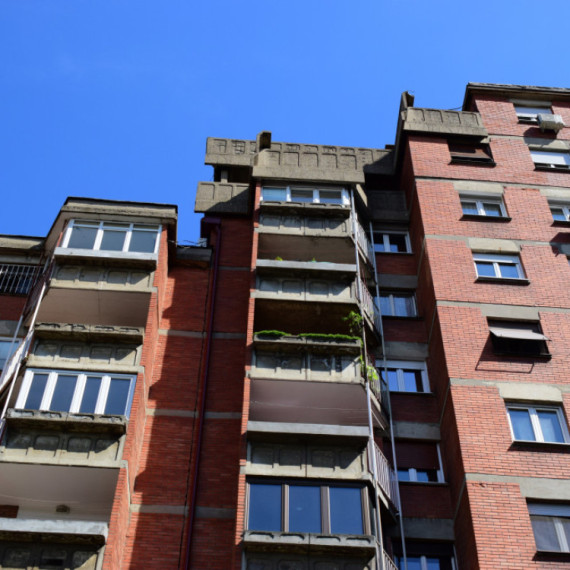




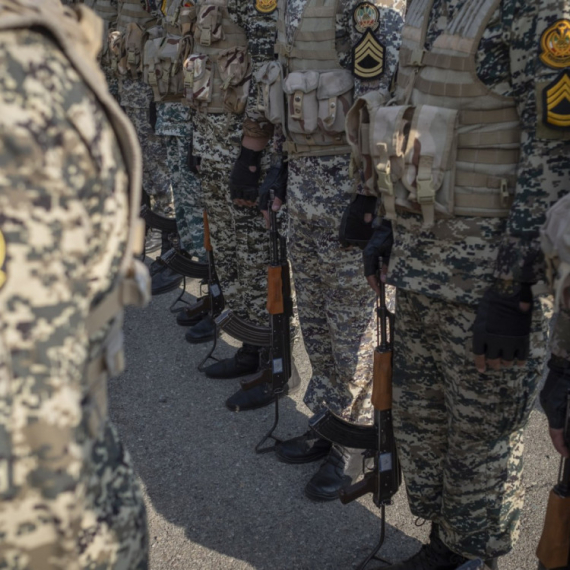
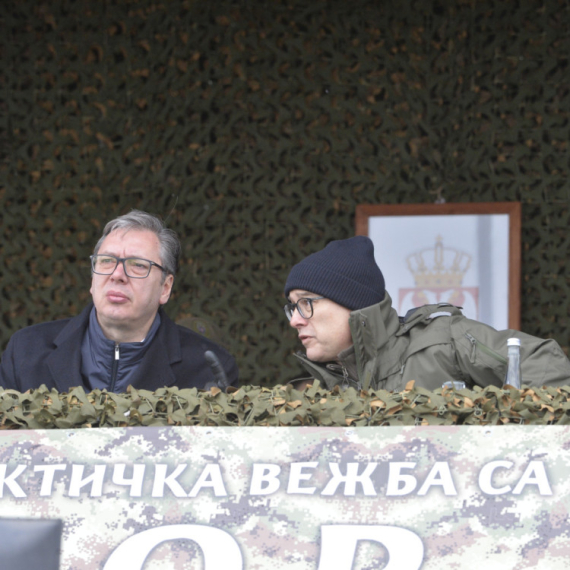


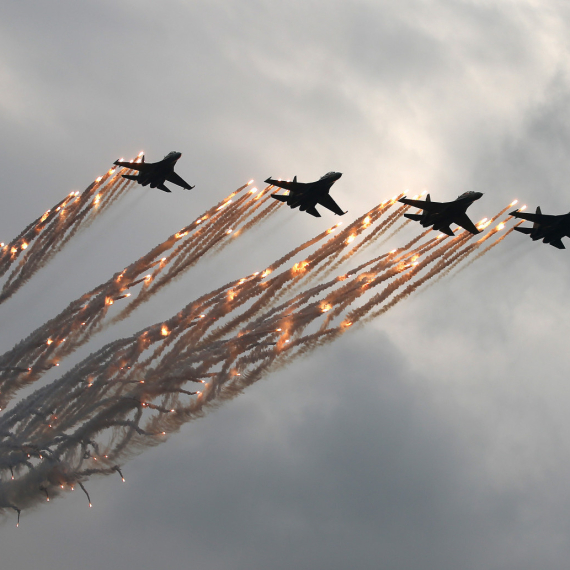


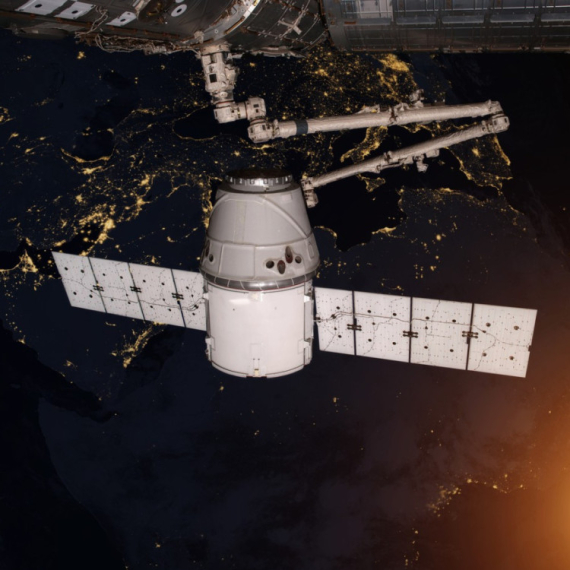

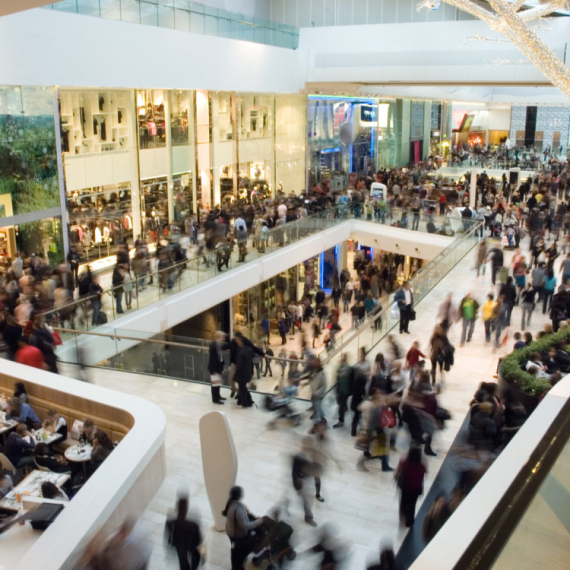


















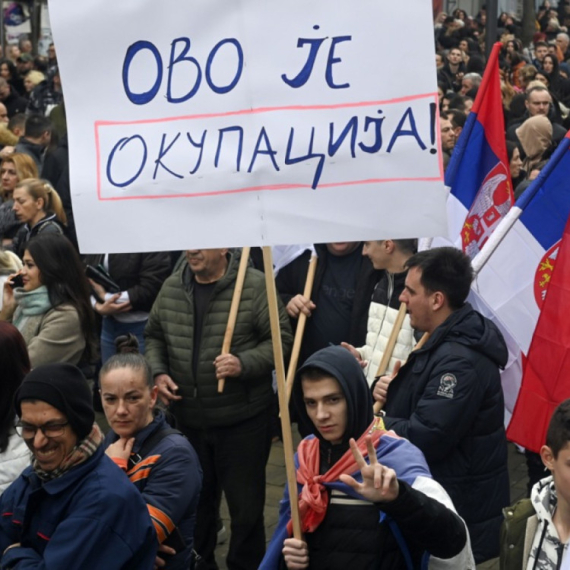



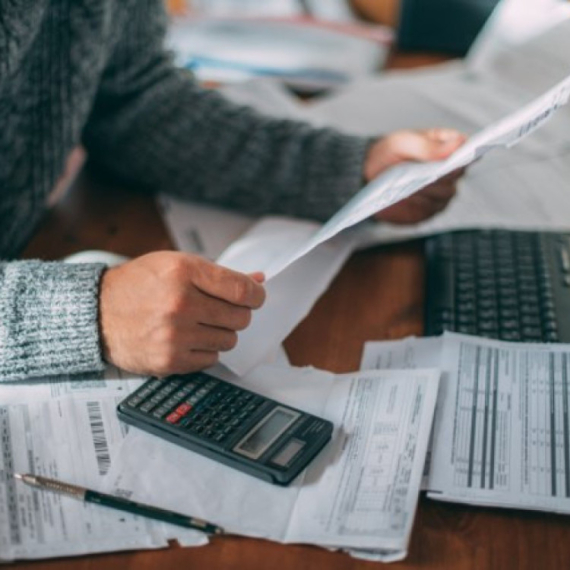


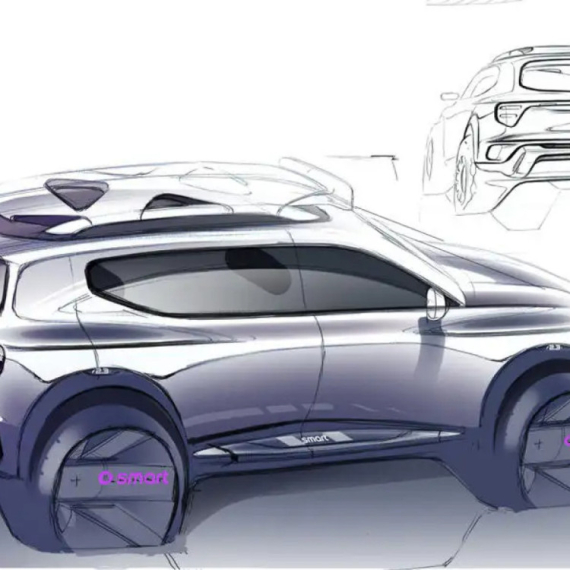

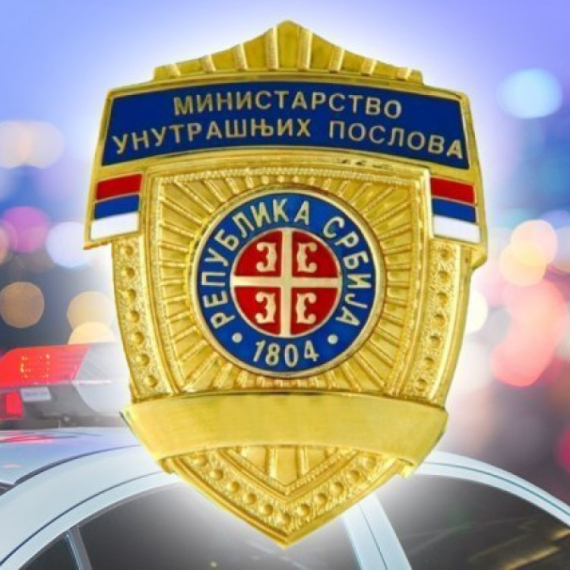



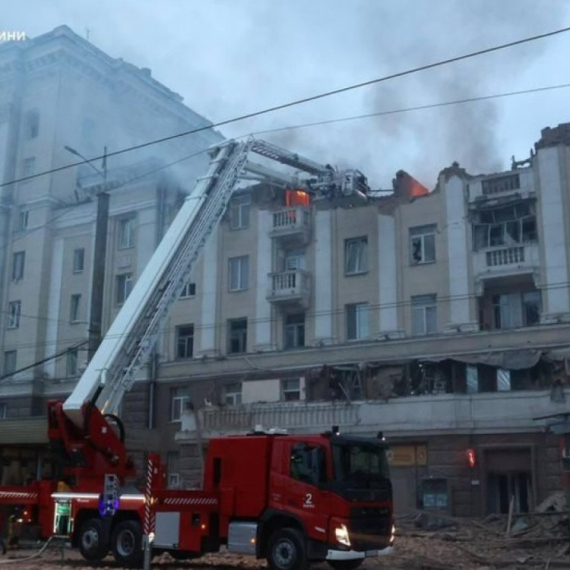



Komentari 7
Pogledaj komentare